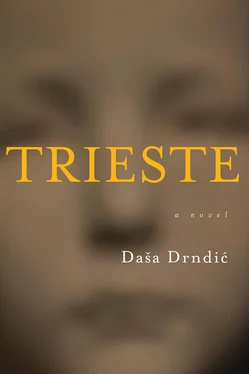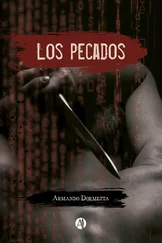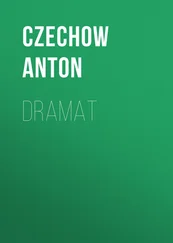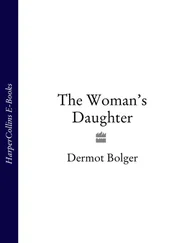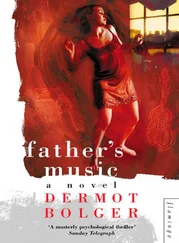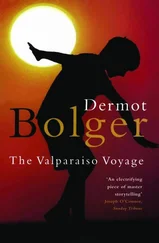Max Sollmann: released
Gunther Tesch: released
Inge Viermetz: released
My situation is complicated many times over. I was stolen. I am a Lebensborn “child”. I was raised by former supporters of Nazism, Jürgen Traube (who never, thank God, sullied his hands) and housekeeper Martha Traube, who also, thank God, renounced her “support”. I still consider Jürgen and Martha Traube to be my parents. I would like to disown them, but I cannot, because they were good and tender parents, they were permissive parents, though they were Catholics, I mean they were not fanatic Catholics, because fanatic Catholics are the worst Catholics, just as all fanatics are horrible and dangerous people. As tolerant parents, Martha and Jürgen Traube took my pronounced anti-fascism in their stride, my anti-Nazi photographs and exhibitions, my often uncontrolled outpourings of fury and, for me, not the least bit benign ressentiment of Austria’s part in the war. They put up with my disgust at Austrian silence, at Austrian blindness bound to Austrian Nazi history. They listened to what I told them and when I married Rebecca they said, Rebecca, you are ours as much as Hans is. But then into my life crept that murderer, S.S.-Untersturmführer Kurt Franz and that Jewish woman who spread her legs for him, for the blonde angel of death, the admirer of music and nature, the bad amateur fanatic photographer, the baby-faced executioner, she spread her legs while trains rumbled past, right there in front of her nose, on their way to killing grounds all over the Reich. At first I was sorry that S.S.-Untersturmführer Kurt Franz was dead, I wanted to shake him up, though his story didn’t interest me, I didn’t want to hear it, because the story was clear to me and for me the story has no inside or outside, it is a monstrous story, full stop. Maybe I would have killed him, S.S.-Untersturmführer Kurt Franz, believing that I was thereby destroying, expunging, exterminating all the dirty genes that are planted inside me. Today nothing matters. I wanted to hear out the woman who gave birth to me, I wanted to forgive her, because she might be able to bring to life the little man, the stunted midget, Antonio Tedeschi, who has been waiting inside me for sixty-two years to grow up, to obtain some kind of a biography, no matter how dull and defective. This Haya Tedeschi could inscribe a history onto my minuscule, half-dead double, this foetus inside me, after which he, Antonio Tedeschi, would open his glued-shut eyelids, straighten up and maybe go his way, leaving me in peace.
I know, there are more stories like mine.
Ah, said my wife Rebecca, relax. The world is full of horrors and life is unpredictable. Look what happened to Beate Niemann, the protagonist of that documentary My Father the Murderer.
I know the story.
Beate Niemann was born in 1942, but it was only in 1997 that she set out to search for her father, which seems both comprehensible and incomprehensible, reasonable and unreasonable, courageous and cowardly. But who am I to judge?
Beate Niemann looked for a father she could be proud of, but she found a murderer. She found S.S.-Major Bruno Sattler up to his elbows in blood. She traced a life shadowed by her mother’s lies, by lies never renounced or denied. Only a few weeks before Beate Niemann was born, Bruno Sattler grouped gassing trucks around SajmiŜte concentration camp on the outskirts of Belgrade, he assembled lorries for the gassing of women and their children. Bruno Sattler was killing women and children at SajmiŜte concentration camp and sending his pregnant wife little love letters, photographs from the field, photographs of nature. Beate Niemann’s father, S.S.-Major Bruno Sattler, had ordered the shooting of several tens of thousands of Jews in Smolensk and near Moscow. They say that Beate Niemann’s father, S.S.-Major Bruno Sattler, took part in the liquidation of 500,000 Yugoslav partisans, Jews, Gypsies and others.
Poor Beate Niemann. Born in Nazi Germany which after the war has for decades publicly , persistently, even courageously, been uncovering the dangerous refuse of its past, Beate Niemann, fifty and something years later decides to start digging through the secrets of her own family, utterly shaken with and surprised by what she finds. Where had the loads of logical doubts been hidden? Which waters did they flow into? Where were her parents’ monstrous truths stored? In tightly packed bundles of hatred which will, covered by layers of mould, of deposited dirt, spontaneously dissolve?
Thus, when in her sixties, when body, but also spirit, become weaker, Beate Niemann, as if stepping on a land mine, faces the truth that additionally crushes her.
After World War One, during the 1920s, Bruno Sattler sells jewellery at the Wertheim department store in Berlin. The proprietors of the store were members of the Wertheim Jewish family, Sattler knows that, so he quickly joins the Nazi Party and becomes a policeman, then advances further and further, until he finally arrives at the Gestapo. Then he moves to the secret service of the S.S., then to the Einsatzgruppen who kill more than a million and a half civilians in the Soviet Union before the butchers and slaughterers of Auschwitz and Treblinka even appear on the scene in Poland.
Beate Niemann’s mother dies in 1984, and that is when Beate Niemann starts searching for her father. She makes the rounds of more than a hundred archives in three countries, but the first traces of truth she finds among her mother’s belongings and in the urban planning office in Berlin, right under her nose. She comes across a document that confirms how already in 1942 Bruno Sattler buys a house from a Gertrud Leon for the miserable sum of 21,000 Reichsmarks. To the purchase and sale agreement which Beate Niemann finds, there is attached a guarantee from Bruno Sattler in which he declares that he will spare Gertrud Leon from any possible transport, that he will guard her life, and that he will not allow anyone to move her anywhere or take her out of Berlin. Two weeks later Gertrud Leon goes off first to Theresienstadt, then from Theresienstadt to Auschwitz to breathe her fill of gas.
Beate Niemann then visits Belgrade. In Belgrade she meets Ljiljana Ȉorđević, who says, Oh, yes, I remember S.S.-Major Bruno Sattler. S.S.-Major Bruno Sattler killed my father at the camp in Sajmište.
So, how does S.S.-Major Bruno Sattler come to his end? In 1947 Russian agents pick him up in broad daylight on a Berlin street and take him off to an East German prison. Many years later, Beate Niemann goes to Leipzig, to the former Stasi prison then already abandoned, in order to peep into the cell her father had occupied. It is a small cell, in it twenty people slept on boards, they tell her, in that cell one could not walk, one could only lie. The walls were still filthy, ghostly, stained with various histories. Finally Beate Niemann learns that her father, S.S.-Major Bruno Sattler, died on 15 October, 1972, they say he was shot in the back of the neck. After that agonizing but greatly belated revelation, Beate Niemann begins her homage to Eastern Europe, seeking out surviving Jews, those who lived through the camps and all the torture and all the humiliation, and when she couldn’t find them , because not many remained, she looked for their children, and to everybody she would say, to those who prevailed, to the leftover people , Beate Niemann would say, Forgive me, forgive me, please forgive me.
Then there’s Monika Göth, the daughter of Amon Göth, the commander of Plaszow camp, the one from Schindler’s List who loved shooting inmates from the balcony of his villa, and people wouldn’t have known about him, they would have had no idea who he was, most people wouldn’t have known who Amon Goth was had they not watched Schindler’s List, but many did not see Schindler’s List, they didn’t want to see Schindler’s List, because the theme of Schindler’s List makes them nauseous, that’s what they say, We don’t want to get upset , they say, all that is in the past now , they say, and Monika Göth, who was one year old when in 1946 her father was hanged as a war criminal, Monika Göth, many years after, forty, fifty years after, also searches for surviving camp inmates tortured by her father and seeks their forgiveness, she roams the world and asks for forgiveness and to everyone she says, I am not like him . Every year Monika Göth goes to Auschwitz and in Auschwitz she pays her respects to the victims of her father, Amon Göth.
Читать дальше
